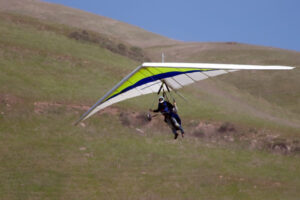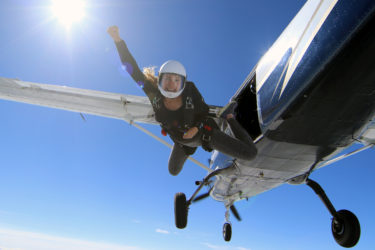
Wanna Know What Makes Your Life Insurance Company Nervous When Applying for Life Insurance?


Aviation – Flying
Your Own Airplane
Base Jumping




Bungee Jumping
and Deep Sea Diving
Hang Gliding and
Mountain Climbing




Parachuting and
Powered Paragliding
Racing Cars
and Motorcycles




Underwater Cave Diving
and Wingsuit Flying
These may be great ways to get a rush!
Just don’t expect your life insurance company to be in love with your death-defying pastime.

If your lifestyle is closer to “The Fast and the Furious” than “The Young and the Restless,” you can expect to pay twice or even three times more than other dull life insurance risks. Remember BORING is good when it comes to life insurance underwriting.
The bottom line to the insurance company you’re asking to go on the hook for millions of dollars. Is what you’re doing dangerous? Are you risking your life by doing it, and what are the chances for a safe survival?
Don’t misunderstand me. Life insurers want to write you a policy. They are in the business of collecting premiums. That’s their business. They’re not out to trash your bliss, but neither do they want to shell out a million dollars the first time you pack your parachute backward, and the chute doesn’t open or something simply goes wrong and the consequences result in death.

The insurance companies are looking for ways to qualify an applicant, not disqualify you. But there are people who disqualify themselves by what they do. Extreme sports and avocations cause extreme premiums or the greater the risk – the greater the premium!
Let’s face it, if you were a life insurance company, would you offer the best premium rate to a wingsuit flyer? Remember, there are two types of wingsuit flyers to the insurance company. Ones that will unfortunately die and ones that will soon be dead!

MORE ON LIFE INSURING A RISKY LIFE
Underwriters look to their actuaries who calculate mortality in term of risk and odds. The insurance companies are very good at evaluating risk. However, two companies can look at the same risk and potentially make different premium offers.
This is where I come in to help during the discovery process.
We would fill out an avocation questionnaire regarding the additional risk the life insurance company would face in the processing of your application. No need to rush an application without getting all of the pieces of your puzzle together first. I would use my marketing resources or reach out to underwriters directly and see who would look at your risky activity most favorably. Are we looking at an extra premium charge and how much or a policy exclusion for the risky activity?
Life insurance actuaries go to great lengths to arrive at pricing for their three most-common policy categories — standard, preferred and super-preferred. These rates are based on mortality, company experience and partly on practical knowledge about ever-changing habits and lifestyles.
By their very nature, life insurance rates reflect the life expectancy of Joe and Jane Average, not your applicant involved in Triple-X extreme activities, which are difficult to handicap. The very novelty that gives you the adrenaline rush can give a life insurance underwriter major headaches.
The easiest thing to evaluate is something that is sure to happen. Mortality is 100% and 100% certain. It’s when you become different from the average group and the underwriter doesn’t know how different that changes the equation.
To cover their risk for your risky activity, life insurers tack on what’s called a “flat extra,” essentially an additional premium on top of your life insurance policy. If you regularly participate in mountain climbing, hang gliding, bungee jumping, skydiving, motorcycle or auto racing, cave diving or flying, chances are you’ll fall into this substandard or “rated” category of folks who face a greater likelihood of early expiration.
What’s the bill for your thrills? Typically, if your standard policy costs $2 per $1,000 of coverage, your flat extra would run on average an additional $2.50 per $1,000, bringing your insurance premium to $4.50 per $1,000.
It can be pretty significant depending on the age of the applicant. On average it doubles your rate, and as you get older because age is a primary factor in life insurance, it can go as high as tripling your rate to cover the risk.
You might be thinking, “Hey, a little skydiving is hardly worth mentioning on this life insurance application, right?” Wrong!
While insurers won’t likely raise an eyebrow about the random scuba dive on vacation or a bungee jump on your birthday, as long as you disclosed it on the application. Now if you do anything extreme on a regular basis and don’t disclose this on the application, they can refuse to pay up when a tragic accident occurs resulting in death and your loved ones want to collect on your life insurance policy. Remember the insurance company sings a different tune at claim time during the 2-year contestability period, or if they believe and can prove fraud was committed thereafter.
Another option is to pursue a policy that specifically excludes your risky avocation should death occur from the activity. Life insurance benefits would be payable for all other accidents or illnesses when insured under the policy.
Advantage: You pay no flat extras above the cost of your policy.
Disadvantage: Your loved ones receive nothing if you perish while engaged in the excluded activity.
Note there are few additional things you can do to help insurers look more favorably upon your pastime without giving up the thrills you love.
The best way to help your cause. Go to school, get a license, do all the safety things that you’re supposed to be doing and present yourself as someone who knows how to do whatever risky avocation you’re doing proficiently.
The good news should you quit your risky activity or leave the death-defying thrills to others, and properly disclose this to the insurance company. You can eliminate the flat extra or policy exclusion.
For more info, see “Understanding Underwriting” and “Understanding Risk”.

